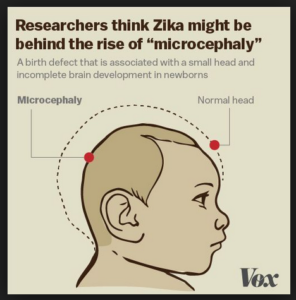Letter to the Editor
By Rodrigo Luiz Vancini1, Marília dos Santos Andrade2, Cássia Regina Vancini-Campanharo3, Claudio Andre Barbosa de Lira 4
Dear Editor,
 Millions of people from all continents are expected in Brazil during the 2016 Olympic and Paralympic Games in Rio. These types of events are characterized by exposure of millions of international travelers to an increased risk of acquiring infectious diseases, including endemic diseases. Therefore, citizens travelling to new areas may be exposed to unusual diseases and return to their home countries infected by these diseases and viruses.1 Therefore, we would like to alert to the risk of acquiring Zika virus infection during the above-mentioned events.
Millions of people from all continents are expected in Brazil during the 2016 Olympic and Paralympic Games in Rio. These types of events are characterized by exposure of millions of international travelers to an increased risk of acquiring infectious diseases, including endemic diseases. Therefore, citizens travelling to new areas may be exposed to unusual diseases and return to their home countries infected by these diseases and viruses.1 Therefore, we would like to alert to the risk of acquiring Zika virus infection during the above-mentioned events.
The Zika virus has recently gained the attention of the scientific community due to its rapid dissemination in tropical and sub-tropical countries, including Brazil.1 Brazilian national authorities estimate that up to a 1.5 million cases of Zika virus infection have occurred since the outbreak.
The Zika virus is associated with a significant probability of a rise in the number of babies born with microcephaly (when involving women during pregnancy) and of neurological disorders, such as Guillain Barré syndrome in more severe cases, when involving adult individuals. Furthermore, the Zika virus can cause Zika fever, an undifferentiated systemic febrile illness and acute clinical presentation whose symptoms generally last 2-7 days and can include fever, headache, retro-orbital pain, conjunctivitis, maculopapular rash, as well as joint and muscle pain.1 2
Although no data are available, the reported symptoms could potentially impair athletes´ sports performance. Therefore, we suggest some strategies to prevent infection, such as choosing air-conditioned accommodation with screened windows and doors, using insecticides, wearing clothing that covers arms (long-sleeved shirts) and legs (long pants), and applying insect repellent (containing EPA, DEET, picaridin, and IR3535). All these strategies aim to limit contact with the Aedes aegypti mosquito.3
Brazilian authorities are committed to fighting the vector mosquito by urging the population to destroy the habitats of Aedes mosquitos and by implementing initiatives to raise awareness about this growing threat.4
We believe that adoption of these preventive actions will safeguard athletes and ensure optimal performances during the Olympic and Paralympics Games. In the meantime, we look forward to seeing you in August.
Acknowledgements
English review of this manuscript was carried out by an English native speaker and supported by Fundação de Amparo à Pesquisa do Estado de Goiás (FAPEG, Chamada no. 10/2013, CAPES-Programa de Apoio à Pós-Graduação-PPGS-FAPEG).
References
- Petersen E, Wilson ME, Touch S, McCloskey B, Mwaba P, Bates M, Dar O, Mattes F, Kidd M, Ippolito G, Azhar EI, Zumla A. Rapid Spread of Zika Virus in The Americas – Implications for Public Health Preparedness for Mass Gatherings at the 2016 Brazil Olympic Games. Int J Infect Dis 2016;44:11-15.
- Waggoner JJ, Pinsky BA. Zika Virus: Diagnostics for an Emerging Pandemic Threat. J Clin Microbiol 2016; pii: JCM.00279-16.
- Ross J. What you need to know about Zika virus. (2016). accessed on march 3, 2016 http://www.health.harvard.edu/blog/what-you-need-to-know-about-zika-virus-201602019114.
- Barreto ML, Barral-Netto M, Stabeli R, Almeida-Filho N, Vasconcelos PF, Teixeira M, Buss P, Gadelha PE. Zika virus and microcephaly in Brazil: a scientific agenda. Lancet 2016; pii: S0140-6736(16)00545-6.
**********************************
1Centro de Educação Física e Desportos, Universidade Federal do Espírito Santo, Vitória, Espírito Santo (ES), Brazil
2Departamento de Fisiologia, Universidade Federal de Säo Paulo, Säo Paulo (SP), Brazil
3Escola Paulista de Enfermagem/Universidade Federal de São Paulo (UNIFESP), São Paulo (SP), Brazil.
4Setor de Fisiologia Humana e do Exercício, Faculdade de Educação Física e Dança, Universidade Federal de Goiás, Goiânia, Goiás (GO), Brazil
For correspondence:
Claudio Andre Barbosa de Lira
Twitter: @lira_fisiologia
E-mail: andre.claudio@gmail.com